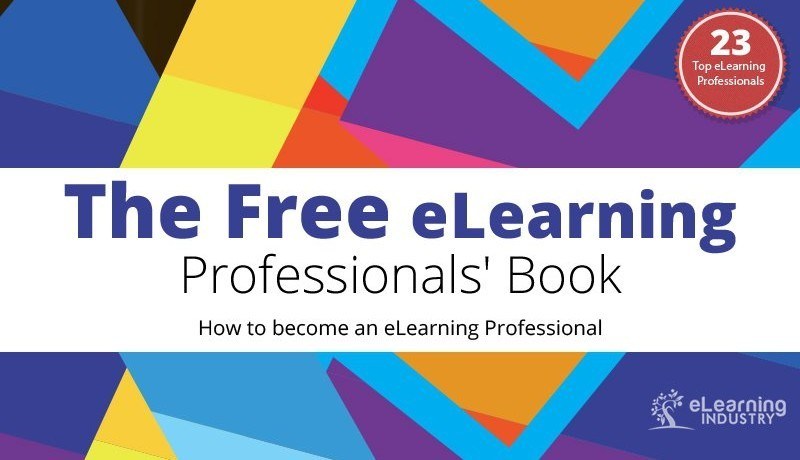MOOCs get a bad rap. Dismissed as prescriptive, or teacher-centric, or unsocial, or something else, it’s like a badge of honour to espouse why you dislike MOOCs.
Despite their pedagogical flaws, however, MOOCs provide unprecedented access to quality content for millions of learners.
It’s all very well for Apple-owning, organic-buying professionals to cast aspersions, but consider the girl in Pakistan who’s too scared to set foot in a classroom. Consider the teenager in central Australia whose school has only one teacher. Consider the young woman in Indonesia who can’t afford college. Consider the boy in San Francisco whose maths teacher simply doesn’t teach very well.
Don’t all these people deserve a better education? And isn’t content sourced from some of the world’s best providers a giant leap in that direction?
Sure, the pedagogy may not be perfect, but the alternative is much worse.

MOOC proponent George Siemens distinguishes between two types of MOOC: the xMOOC and the cMOOC.
The former is the subject of such disdain. Involving little more than knowledge transmission and perhaps a quiz at the end, the xMOOC is widely seen as replicating old-fashioned lectures and exams.
In contrast, the latter leverages the connectedness of the participants. Seeded with content, the cMOOC empowers – read “expects” – the learner to discuss, debate, discover, share and co-create new knowledge with his or her fellow learners.
The cMOOC’s participant is active whereas the xMOOC’s participant is passive. As Siemens puts it, cMOOCs focus on knowledge creation and generation whereas xMOOCs focus on knowledge duplication.
Despite Siemens’ evangelism though, I don’t think the cMOOC is necessarily better than the xMOOC. (I’ll explain later.) Love them or loathe them, xMOOC or cMOOC, the fact remains: MOOCs have arrived, and they are here to stay.
Moreover, I submit they are yet to wreak their full vengeance on the education industry. When I look into my crystal ball, I foresee that MOOCs will rock our world, and they will do so in 15 ways…
1. Universities will finally accept they are service providers.
As the latest edition of Educause Review indicates, universities are fee-for-service businesses. That means they are subjected to market forces such as competition.
MOOCs beg the question: If I can study at Stanford University for free, why would I pay tens of thousands of dollars to study at your dinky university and subject myself to your arcane rules?
2. The vast majority of students will be overseas.
Countries that currently attract foreign students to their shores will need to brace for the impact on their local economies, as an ever-increasing proportion of students choose to gain an international education without leaving their home country.
3. The pecking order will be reshuffled.
While the world’s most prestigious institutions will enjoy a windfall of new students, those that rely more on age than ability will ultimately fail as the target audience realises how pedestrian they are.
Conversely, some of the smaller, younger institutions will emerge from the shadows as the world sees how good they really are.
4. Research will become a competitive advantage.
There’s nowhere to hide on the global stage, and cutting-edge expertise will be one of the few aspects that a university will have to distinguish itself from the others.
No more lazy professors, no more specious journal articles. Faculty who don’t generate a flow of new knowledge for their students will have their tenure terminated.
5. Universities will flip their classrooms.
Bricks’n’mortar establishments will become expensive relics unless their owners redeploy them. One way to do that is to leverage MOOCs for content delivery and provide value-added instruction (discussion, Q&A, worked examples, role plays etc) to local students – who of course will pay a premium for the privilege.
Studying on campus will become a status symbol.
6. The role of the teacher will evolve.
There’s no point rehashing the same lectures when the world’s best authorities have already recorded them and offered them to the world as OERs. It’s how the teacher uses that content to support learning that will make the difference.
7. The pedagogy of MOOCs will be enriched.
While MOOCs typically comprise video clips and perhaps a quiz, they will inevitably include more instructional devices to assist distance learning (and remain competitive).
Over time, content providers will supplement their core offerings with live webinars, interactive exercises, discussion forums, wikis, social networks etc. Some may even organise real-life meetups at selected sites around the world.
8. Content providers will charge for assessment.
A certificate of completion is good; an official grade is better.
Assessment is one of the ways universities will monetise their MOOCs, and edX is already going one step further by offering proctored exams.
9. Universities will offer credits for MOOCs.
Again, this is already being considered by the American Council on Education.
Of course, a certificate of completion won’t suffice. Ka ching!
10. Online cheating will mushroom.
An ever-present thorn in the side of online education, cheating will be almost impossible to prevent in the MOOC space. But surely we can do better than onsite exams?
11. Academic inflation will skyrocket.
Every man and his dog will have a ream of courses listed on his CV. Employers will consider certificates of completion meaningless, while maintaining a reserved suspicion over assessment scores.
Outcomes-based activities that demonstrate the applicant’s knowledge and skills will become a component of best-practice recruitment.
12. Offshoring will become the rule, not the exception.
Deloitte’s global CLO, Nick van Dam, told me that American firms are using MOOCs to upskill accountants based in India on US accounting practices.
Dental, anyone?
13. MOOCs will target the corporate sector.
Current MOOCs are heavily geared towards school and college audiences. Over time, an increasing number of narrow, specific topics that link to corporate competencies will emerge.
Content providers will wag the long tail.
14. The corporate sector will embrace xMOOCs.
Learners in the workplace are time poor. They don’t have the luxury to explore, discover, and “make sense of the chaos”. They need the knowledge now and they are happy for the expert to transmit it to them.
15. An xcMOOC hybrid will emerge as the third variant.
Sooner or later, the powers that be will remember that an instructivist approach suits novices, while an increasingly constructivist and connectivist approach suits learners as they develop their expertise.
Hence, the MOOC of the future may resemble an xMOOC in its early stages, and morph into a cMOOC in its later stages.




